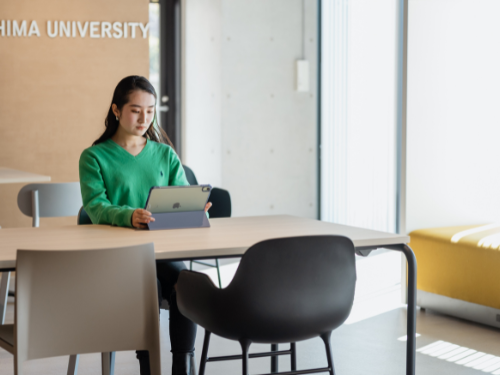By Hiroshima University Department of Public Relations
Organizers held the “Women in Entrepreneurship Education Symposium” on the first day of the two-day effectuation conference. (Hiroshima University)
Hiroshima University organized Asia’s first conference on effectuation, the method expert entrepreneurs use to create ventures that thrive under highly unpredictable situations.
The two-day conference was held on March 8-9 at HU’s Phoenix International Center MIRAI-CREA and online. The “Women in Entrepreneurship Education Symposium” was conducted on the first day of the event to mark International Women’s Day, followed by the main “Effectuation Conference” the next day.
Speaking at the conference was University of Virginia Darden School of Business Professor Saras Sarasvathy, who first articulated effectuation 20 years ago under the supervision of Nobel laureate in Economics Herbert Simon.
Amid hurdles posed by the pandemic, HU Associate Professor Emi Makino, one of the event’s organizers, said Japan’s first effectuation conference came at the perfect time. As a mode of entrepreneurial action and logic, effectuation is gaining attention in the country’s startup community, as well as among marketers and management consultants.
“I think the timing was ripe. And Japan has been investing heavily in entrepreneurship education for the past, maybe six or seven years,” she said.
Makino, who teaches business courses such as technology marketing, explained that entrepreneurship education in Japan has evolved in a way that it has become mainly about tech-based startups.
“But it’s not. It’s really something that applies to everybody, especially in times of uncertainty, when you cannot predict the future,” she said.
“So, when you’re in a situation like COVID-19, where you really can't predict anything, then planning can actually be detrimental.”
One of the key takeaways in the panel Makino moderated, where Hiroshima Prefecture’s governor and Sarasvathy had a dialogue, was education’s importance.
“Japan is behind the curve in terms of entrepreneurship education in general. For example, in Europe, there’s a huge push to require entrepreneurship education at all levels of schooling starting from elementary school. You also have Ph.D. degrees in entrepreneurship, which is normal in the United States. It’s not normal yet in Japan,” she said.
“And one of the issues we've always run into, and this is not just about Japan but also elsewhere, is that it's really hard to get women students to take courses in entrepreneurship.”
Makino cites that entrepreneurship isn’t seen as an attractive choice for women because the role models dominating the field like Elon Musk are all in the high-tech startup world.
“This is the sort of mistaken perception of entrepreneurship. It’s not just about startups. It’s about creating value, right? So, you're creating value from things where value did not exist before,” she remarked.
Makino hopes to continue having the symposia on a regular basis, rotating from one university to another, and to start developing a community of people interested in cultivating more women entrepreneurs and female entrepreneurship educators.
“We all learn the scientific method at school, even though we're not going to become scientists. Even if you don’t become a scientist, the scientific method is useful. Similarly, the entrepreneurial method is also going to be useful, even if you're not going to become an entrepreneur,” she said.
The event was co-organized by Hiroshima Prefecture, Waseda University EDGE-NEXT and T-UNITE programs, Kyushu University EDGE-NEXT IDEA program, and Nagoya University Tongali program.

 Home
Home















